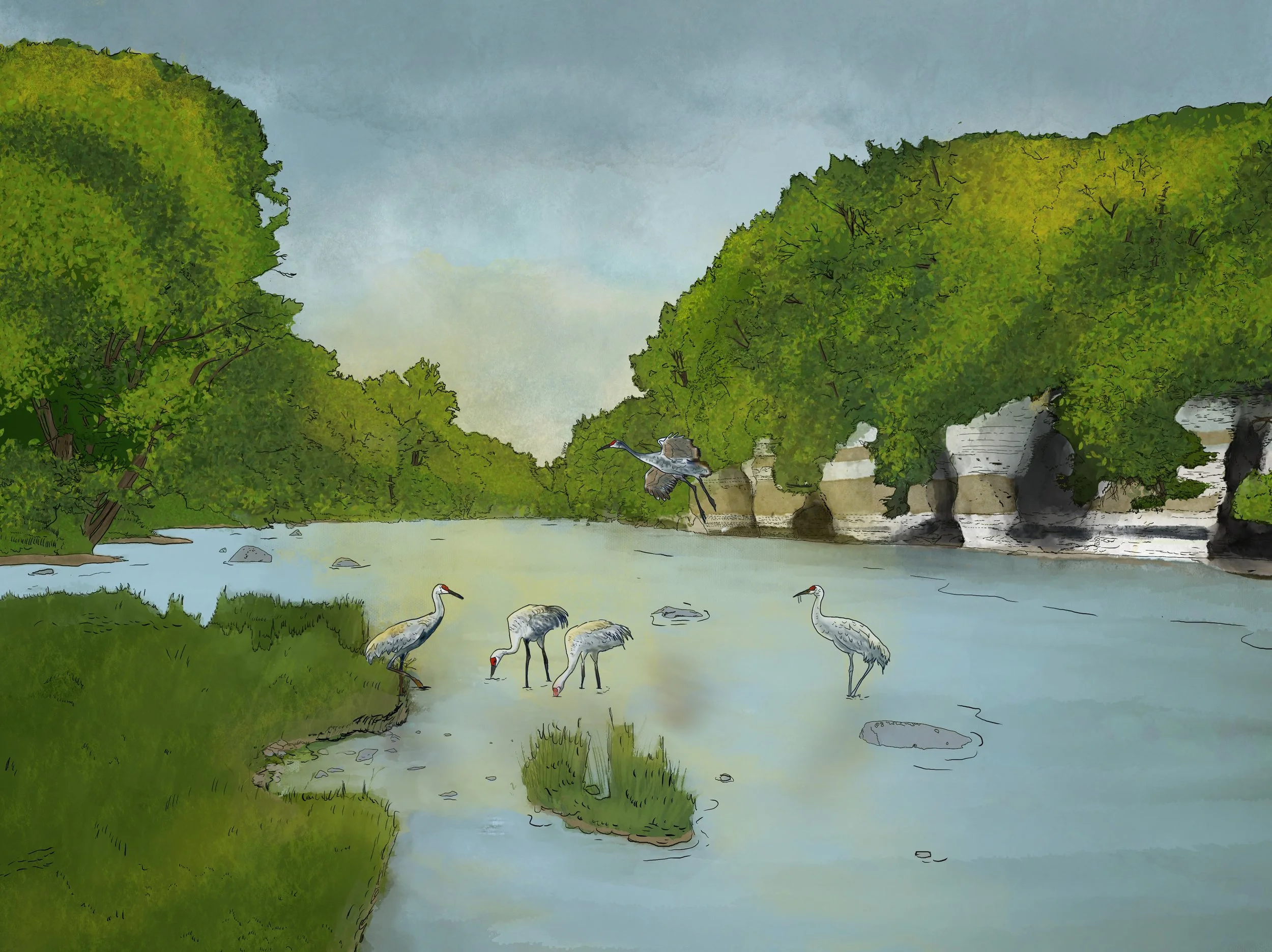Research
I am an interdisciplinary scholar who works in multiple interdisciplinary fields across the social sciences and humanities: Indigenous studies, ethnic studies, early American history, Algonquian language reclamation, and women’s & gender studies.
While my work reaches out in many directions, these projects are interconnected through an approach to asking good questions shaped by theories of power, subjectivity, and knowledge production and informed by methodological interventions in feminist and decolonial approaches to interdisciplinary research design. I am something of a methods nerd and I am passionate about high quality interdisciplinary research training and methodologies.
Below are some of my current projects:
Reclaiming Our Languages: this past year Glassburn formed an undergraduate research team made up of Alicia Campbell, Bella Hebert, and Bennett McLeod, who conducted a systematic review of the field of Indigenous language reclamation and revitalization. We reviewed over 4050 articles and found only 63 that address Indigenous people learning their own ancestral languages, which highlights the minimal role Indigenous learning plays in the field of Indigenous language revitalization. Furthermore the student researchers were struck by the difference in how Indigenous and non-Indigenous authors wrote about the purpose of Indigenous language learning, for instance non-Indigenous authors were unlikely to name Indigenous persons involved in the work, where Indigenous authors consistently highlighted and named the people involved in the project and the specific significance of the work to those persons. This project is funded by a SSHRC Knowledge Synthesis Grant (2024).
Miami Sovereignty: For too long the Miami have been stuck in an odd chasm of US federal recognition policy – recognized as individual adult American Indians by the Bureau of Indian Affairs, but not recognized as a sovereign nation in their homelands. The history of the Miami Nation of Indiana over the twentieth century is one of constant struggle for rights and recognition – lands illegally confiscated, lumber stolen, fishing rights denied, lands intentionally flooded, and yet the Miami persist. As a continuation of our long struggle with the US government, the Miami Nation of Indiana council is conducting an in-depth study of contemporary Indiana Miami community and governance. Glassburn is working closely with Dr. Maeve Kane of the University of Albany to design this research and lead the data analysis team. If you are a Miami person, please know your participation in this research is much needed and appreciated – please consider reaching out to your band leaders for more information on how to participate in this incredibly important project for Miami sovereignty. This research is funded by a SSHRC Partnership Engagement Grant (2024). If you are interested in supporting Miami work towards sovereignty please consider donating directly to the Miami Nation of Indiana.
Felt Histories: This project disrupts the hegemony of settler historical narratives of the Miami by centering Miami heritage values and felt experiences of historical narratives into the process of history-making. Dian Million defines felt knowledge as “colonialism as it is felt by those whose experience it.” (2008) This project builds off of my prior research on the production of Miami historical narratives, but shifts the tension of the analysis onto the effects of historical narrative on Miami people, relations, and futures. This project is funded by a SSHRC Insight Development Grant (2022-24) and is based on research previously supported by the American Philosophical Society’s Phillips Fund, Eastern Michigan University’s Provost Faculty Research Fellowship, and Newberry Library of Chicago’s Frances C. Allen Fellowship.
awikitaawi: a Myaamia grammar and reclamation guide. This book-length project is an interactive workbook on how to think and go about participating in Myaamia language reclamation work. This book guides users on how to understand and make the most use of contemporary Myaamia language resources, how to build community around practicing and learning Myaamia, how to be a good relative and ancestor amid reclamation work, and the ins and outs of Myaamia grammar. This project grew out of the Myaamia grammar certificate program (2015-present) which was funded by a SSHRC Connection Grant (2022-23), a James H. Brickley Innovation Award, and Eastern Michigan University’s Women in Philanthropy Grant.
saakiciweeyankwi: an annual language and culture camp for Miami Nation of Indiana youth. This camp was formed in 2007 by Glassburn, Scott Shoemaker, Erin Dunnegan Oliver, and Sarah Siders and continues today by centering the values of reclamation: building robust networks of community across MNI families and clans, connecting youth to Myaamia language, history, and culture, and spending time learning together and caring for one another. This camp is only available to members of the Miami Nation of Indiana and run entirely on volunteer labor. If you wish to support these efforts, please consider a direct donation to the Miami Nation of Indiana. When new dates are available for upcoming camp, it will be posted as an event on this website.
Highlighted Publications
“Fostering Trauma Informed Consciousness-Raising: co-learning online.” Feminist Pedagogy for Teaching Online. Edited by Jacqueline Thoni Howard, Enilda Romero-Hall, Clare Daniel, Niya Bond, and Liv Newmann. Athabasca University Press. 2024.
“Indigenous Feminisms.” Rethinking Women’s and Gender Studies II. Edited by Anne Braithwaite and Catherine Orr. Routledge. 2023.
“Biopolitical Resistance to Indian Relocation on the Frontier.” American Quarterly. Vol. 71, no. 3, (Fall 2019): 863-870.
“Settler Standpoints.” William & Mary Quarterly. Vol. 76, no. 3, (Summer 2019): 399-406.
“What Makes an Interdisciplinary Feminist Scholar?” Feminist Studies. 44, no. 2 (2018) 363-378.
"Subjectivity and Comparison." Biography: An Interdisciplinary Quarterly, special issue "Indigenous Conversations about Biography."* Vol. 39, No. 3, (Summer 2016): 429-433.
"Archival Absence: the Burden of History.” Settler Colonial Studies 5, no. 2 (2015): 128-144.
"Indigeneity and the Work of Settler Archives.” with Melissa Adams-Campbell and Courtney Rivard. Settler Colonial Studies 5, no. 2 (2015): 109-116.
